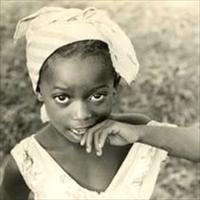IAC’s Regional Media Workshop Ends in Addis Ababa

The Inter African Committee on Traditional Practices (IAC) recently ended a two-day regional media workshop in Addis Ababa, Ethiopia. In her welcoming address the executive director, Mrs. Berhane Ras- Work, has said that the IAC realizes the strong potential of the media to promote positive values and norms while discouraging negative attitudes that violate basic human rights principles. “At the international level the universality and indivisibility of human rights principles have been confirmed and accepted. Based on this confirmation, international and regional instruments have been developed and adopted. Despite this encouraging development, violation and violence against women still persist.”
In order to close the gap between agreed principles, policy and actions for the protection of women and girls, Mrs. Ras-Work noted that the media can play a crucial role through information and communication, “harmful traditional practices flourish in the fertile ground of ignorance in which she said the lives of women and girls are governed by die-hard negative traditional values since women are deprived of information and education on their basic rights to their health and general well being,” she emphasized.
Mrs. Ras-Work however disclosed that, the mobilization and involvement of both modern and traditional media for the introduction of positive values and change, are among their priority list of actions. The workshop, she added, was organized to create close working relationships with the media for the promotion of gender equality through the eradication of harmful attitudes and practices, such as female genital mutilation. “If we all join hands and work towards impacting positive social change, African women and girls will live in a healthy society where they can contribute fully towards the achievement of the millennium development goals”.
In her presentation on the role of the media in the campaign to eliminate FGM and other harmful traditional practices, Ms Helen Ovbiagele, woman editor, the vanguard newspaper Nigeria, told the participants that culture always has been the backbone of the African people for centuries. She said culture has been the oil in the machinery that ran the tribes and ethnic groups in ways that were supposed to be in the best interest of the people in the social, religious and moral areas. Ms Ovbiagele noted that our culture also ensures that the young respect the old, and courtesy she said is taught from early childhood, “ so that we can have a well-ordered society. Good moral values are cherished in the African culture, though rules concerning these are mainly made, with the aim of keeping the women folk in check. Interaction with the western world, however, has re-educated us about some parts of our culture, particularly with regards to the areas concerning women”. Some of these cultural practices, she said, are:
Female genital mutilation (FGM) and this she said occurs mostly during the early months of the female child’s life, “we’re told that this is to check sexual promiscuity among girls as it reduces their desire for sex, and sexual pleasure. Apart from the excruciating pain inflicted on the girls who are circumcised, some girls lose their lives due to infection from wounds, while some are maimed for life. There’s no evidence that girls who are circumcised have better moral values, and make more faithful wives than those who are not; so, it’s a dangerous practice which serves no purpose.
Harmful widowhood rites- in some African cultures, when a married man dies, whatever his age, is imperative to find out if his wife has caused his death by supernatural means, so, she is subjected to harmful and humiliating rites; like going to walk round his grave several times and cry in the middle of the night; drinking the water that has been used in washing his corpse; sitting and sleeping on a mat on the floor for several months, having the hair shaved, etc., Each ethnic group has its own peculiar rites. If a widow dies within six months of the death of her husband, then it could be assumed that she was responsible for his death and her death proved that she was guilty. The trauma of losing her husband, combined with the obnoxious rites she had been subjected to, could easily lead to the widow’s death. On the other hand, if a married woman dies, “it’s her own rotten luck, and the widower is not accused of being responsible for her death, even if he had been an irresponsible husband and father, a drunk and a wife batterer and child abuser. Rather, he gets a lot of sympathy and he’s encouraged to take another wife as soon as convenient so that he doesn’t suffer’.
 Back and Next - Back and Next
Back and Next - Back and Next See Also - See Also
See Also - See Also